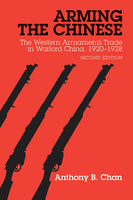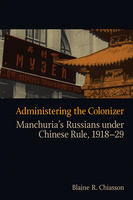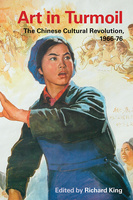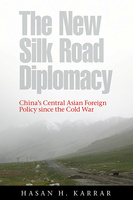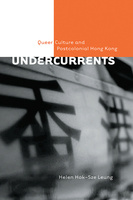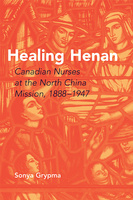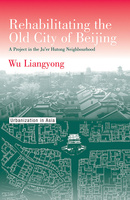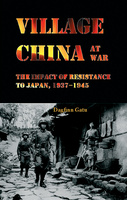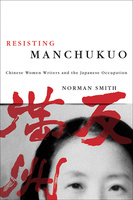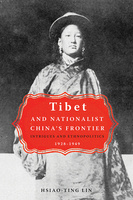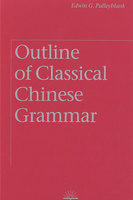Arming the Chinese
The Western Armaments Trade in Warlord China, 1920-28, Second Edition
Anthony Chan repositions his classic account of the arms trade in warlord China within the paradigm of critical militarism and state criminality.
Administering the Colonizer
Manchuria’s Russians under Chinese Rule, 1918-29
A revisionist history of a unique administrative experiment – the Chinese administration of Manchuria’s Russians in the 1920s – that supports a more nuanced view of Chinese nationalism and China’s relationship with minority cultures.
Art in Turmoil
The Chinese Cultural Revolution, 1966-76
This book decodes the rhetoric of China’s turbulent decade, a time of both brutal iconoclasm and radical experimentation in the arts, to offer new insights into works that have transcended their times.
The New Silk Road Diplomacy
China's Central Asian Foreign Policy since the Cold War
The New Silk Road Diplomacy traces how China, faced with internal and external challenges to its authority following the collapse of the Soviet Union, constructed a gradualist approach to Central Asia that prioritized multilateral diplomacy.
Undercurrents
Queer Culture and Postcolonial Hong Kong
Undercurrents engages the critical rubric of “queer” to examine Hong Kong’s screen, uncovering a queer media culture that has been largely overlooked by critics in the West, and demonstrates the cultural vitality of Hong Kong amidst political transition.
Healing Henan
Canadian Nurses at the North China Mission, 1888-1947
Set against a backdrop of war and revolution, this book brings sixty years of missionary nursing out of the shadows by examining how Canadian nurses shaped health care in the province of Henan and how China, in turn, influenced the nature of missionary nursing.
Rehabilitating the Old City of Beijing
A Project in the Ju'er Hutong Neighbourhood
Wu Liangyong offers a new direction for the planning and development of China's capital.
Chinatowns
Towns within Cities in Canada
From instant Chinatowns in gold- and coal-mining communities to new Chinatowns which have sprung up in city neighbourhoods and suburbs since World War II, this is definitive history of Chinatowns in Canada.
Village China at War
The Impact of Resistance to Japan, 1937-1945
History accelerated.
The Chinese State at the Borders
The essays in this volume look at China's relationships with border peoples over a long span of time, questioning whether the process of expansion was a benevolent civilizing mission.
Resisting Manchukuo
Chinese Women Writers and the Japanese Occupation
Teachers’ Schools and the Making of the Modern Chinese Nation-State, 1897-1937
This innovative account examines the social and political impacts of Chinese teacher's schools in the early 20th century, their role in a society in transition, and their production of grassroots forces that lead to the Communist Revolution.
Tibet and Nationalist China's Frontier
Intrigues and Ethnopolitics, 1928-49
A counterpoint to erroneous historical assumptions, this book argues that Nationalist sovereignty over Tibet and China's other border regions was the result of rhetorical grandstanding by Chiang Kai-shek and his regime.
Frontier People
Han Settlers in Minority Areas of China
Frontier People shows how the Han themselves have been directly involved in the process of transforming the areas where they have settled.
Images in Asian Religions
Text and Contexts
A comprehensive and balanced look at the role of images in Asian religions, which examines aspects of the reception of image worship that have only begun to be studied.
Gutenberg in Shanghai
Chinese Print Capitalism, 1876-1937
Gutenberg in Shanghai demonstrates how Western technology and evolving traditional values resulted in the birth of a unique form of print capitalism whose influence on Chinese culture was far-reaching and irreversible.
The Cult of Happiness
Nianhua, Art, and History in Rural North China
The Cult of Happiness is among the first studies in any field to treat folk art and folk print as historical text. As such, this richly illustrated volume will appeal to a wide range of scholars in Asian studies, history, art history, folklore and print, as well as anyone having a passion for the creativity and culture of rural society.
Obedient Autonomy
Chinese Intellectuals and the Achievement of Orderly Life
This anthropological study of Chinese archaeologists shows how the discipline works within a Chinese social structure, and uncovers the complex underpinnings of that context.
Gender and Change in Hong Kong
Globalization, Postcolonialism, and Chinese Patriarchy
This sophisticated collection of essays provides an innovative analysis of gender relations at the nexus of globalization, Chinese patriarchy, and post-colonialism in Hong Kong.
Scars of War
The Impact of Warfare on Modern China
A forceful look at the long-term social and psychological impact of warfare on modern China’s civilian population.
China in the 1990s, 2nd Edition
Now updated with a chapter-length afterword by the editors on the end of the Deng era and its aftermath, this book provides a comprehensive survey of a nation in transition.
The Power of Words
Literacy and Revolution in South China, 1949-95
This social and political history of the struggle for literacy in rural China shows how China's revolutionary leaders conceived and promoted literacy in the countryside and how villagers made use of the literacy education they were offered.
Chinese Opera
Images and Stories
This book introduces the reader to this unique theatrical form through an exciting series of photographs of operatic performances from many regions of the country.
Outline of Classical Chinese Grammar
A comprehensive introduction to the syntactical analysis of classical Chinese.
Lexicon of Reconstructed Pronunciation
in Early Middle Chinese, Late Middle Chinese, and Early Mandarin
The pioneering authority on Chinese historical phonetics Edwin Pulleyblank has compiled this Lexicon to present the result of his researches on the phonology of Middle Chinese and its evolution to Mandarin.
The Chinese in Cambodia
This book is the first study of the Chinese in Cambodia -- from anthropological, historical, the economic, the legal, and demographic points of view.

